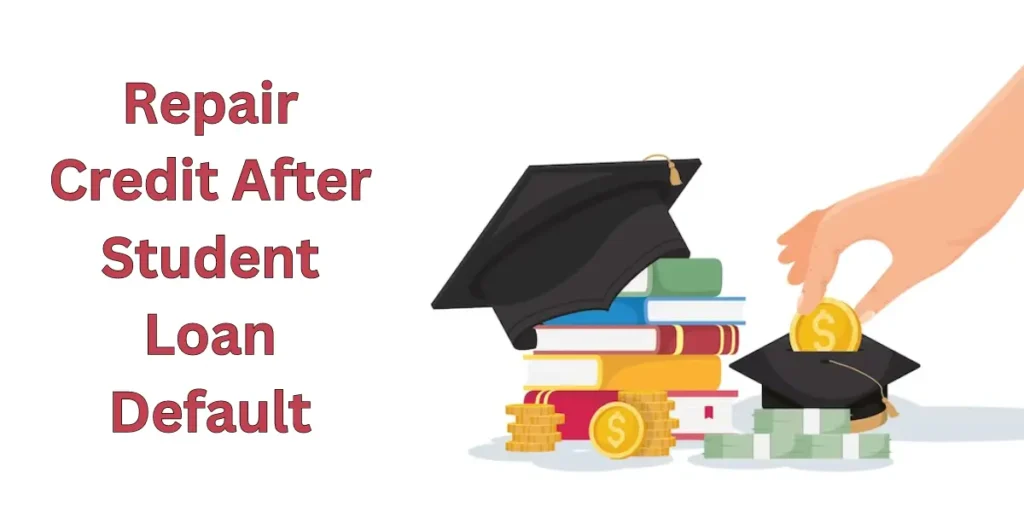Not paying back your student loans can make it hard for you to borrow money later on. But don’t worry, you can fix your credit by being responsible with your money and making good choices. It might take a while, but it’s possible!
Before talking about how to fix your credit after not paying back your student loans, it’s important to know what can happen if you don’t pay them back.

How To Repair Credit After Student Loan Default
#1. Pay Off Your Loan And Get Out Of Default
The most important thing you need to do is to get out of default. Default is a big problem because it makes your credit score go down. To make your credit better again, you have to get out of default.
The easiest way to solve this problem is to pay back all the money you borrowed. But we know it’s hard because you don’t have enough money to do that. The problem is that you need money to make the payments and get out of trouble.
If you don’t have any money saved, try to find a loan with a low interest rate. You can use this loan to pay back the money you owe for school and get out of trouble.
You can also ask someone in your family to lend you money at a lower interest rate to help you get back on track with your finances. Another option is to apply for a loan with someone who has really good credit. Their good credit score will help you get a loan with a low interest rate.
#2. Pay Off All Other Debts
If you haven’t been able to pay back your student loans, it’s likely that you haven’t been able to pay other bills on time either. You might also owe a lot of money on your credit cards. This makes your credit score go down.
Credit cards also charge a lot of interest, so it’s important to pay them off too. It’s hard, but you have to pay both debts to stop your credit score from getting worse.
Also Read – How Can You Reduce Your Total Student Loan Cost
#3. Rehabilitate Your Student Loans
Fixing your student loans can help you get back on track and make your credit score better. You have to talk with the people who manage your loans to fix them.
Rehabilitation means paying a certain amount of money each month for about nine to twelve months to fix a problem with your loan. The amount you pay each month should be something you can afford, and you need to tell the person who manages your loan how much you can pay.
Once they agree, it’s important to make every payment on time and for the full amount. If you do this, it will eventually fix any problems with your credit report and make your credit score better.
#4. Consolidate Your Federal Student Loans
Consolidation means putting all your federal student loans together into one loan. This can happen after you have made three payments on time.
Combining your federal student loans has many good things. It makes it easier because you only have to pay one person, at one time, and at one interest rate. The interest rate will stay low because it’s a program by the government. And if you have a certain job, you can get help to forgive your loans.
Also Read – Why Is Personal Finance Dependent on Your Behavior?
#5. Enroll In An Income-Based Repayment Program
Income-based repayment programs are a special plan for paying back money you borrowed for school. Instead of paying a lot of money each month, the amount you owe is based on how much money you make.
This way, you can always afford to make your payments. If you make your payments on time, your loan won’t be in trouble. Plus, you’ll have extra money to fix any problems with your loan and improve your credit.
Fixing your credit after not paying back your student loans is not something that happens right away or is easy. It means you have to always make good choices with your money for a long time. And while you’re trying to fix your credit, it’s important to keep paying all your bills on time. That’s the only way to make your credit score better in the future.